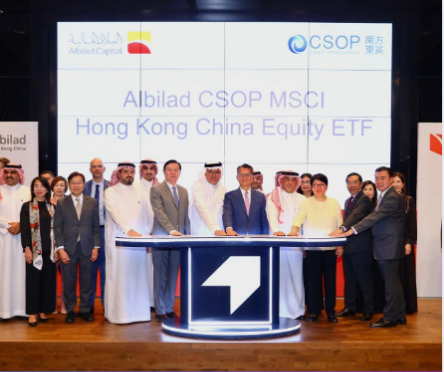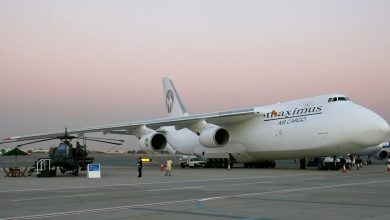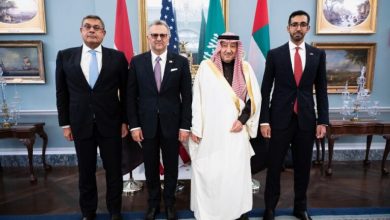Reports
A Fruitful Harvest of Cooperation Between China and Arab Countries (2024)

Sudan Events – Agencies
Throughout 2024, China and Arab countries actively worked on implementing the agreements reached by the leaders of both sides. The bilateral partnership has achieved remarkable results in traditional areas such as energy, infrastructure, and foreign trade, as well as in modern fields like information technology, the digital economy, and renewable energy. Additionally, cultural, educational, and tourism exchanges have been strengthened, helping to deepen practical cooperation and enhance people-to-people exchanges.
On May 30, 2024, the 10th Ministerial Meeting of the China-Arab Cooperation Forum was held in Beijing, where both sides decided to make joint efforts to accelerate the construction of a community of shared future for China and Arab countries in the new era. The goal is to build a model of relations based on mutual benefits, win-win outcomes, mutual learning, and shared progress.
During the meeting, China proposed the “Five Frameworks for Cooperation” to outline the development of China-Arab relations, which include a more dynamic innovation framework, an expanded investment and finance cooperation framework, a multifaceted energy cooperation framework, a more balanced economic and trade framework for mutual benefit, and a broader framework for people-to-people exchanges.
Regarding investment between China and the Arab world, the partnership between China and Saudi Arabia stands as a prominent example. In September 2024, Saudi Minister of Investment Khalid bin Abdulaziz Al-Falih stated that around 750 joint projects or Chinese companies are currently operating in the Kingdom. Trade between China and Saudi Arabia also continued to grow rapidly, with bilateral trade surpassing 100 billion USD last year, and this upward trend continued into the first half of 2024.
In 2024, cooperation between China and Arab countries in the energy sector saw significant progress toward greater integration. In November, construction began on the second phase of the “Queli” integrated refining and petrochemical project at the Queli Petrochemical Complex in Fujian Province, southeastern China. This project is a model of China-Arab cooperation in the energy sector, with total investments nearing 71.1 billion yuan (approximately 9.73 billion USD).
Estimates suggest the annual production value of the project will reach around 80.8 billion yuan. The project is expected to be completed and fully operational by the end of 2030, providing 5 million tons of raw materials annually for the Queli complex, helping to enhance its industrial chain and promote the development of the industry in a smart and green way.
In August, the construction of an oil and gas collection and transportation platform for Saudi Aramco was completed. The platform, built by China National Offshore Oil Corporation’s (CNOOC) Qingdao Offshore Engineering Limited, was delivered in Qingdao, Shandong Province, eastern China. This is one of the largest offshore oil and gas platforms in the world in terms of collection and transportation capacity. It will primarily be used for collecting and transporting oil and gas extracted from the sea to land for processing, with the ability to collect and transport 24 million tons of crude oil and 7.4 billion cubic meters of associated gas annually.
As the first Chinese company listed in the long-term development agreements for offshore oil and gas projects with Saudi Aramco, this platform project marks the first Saudi Aramco project undertaken by CNOOC’s Offshore Engineering Limited as the general contractor.
In 2024, China and Arab countries also achieved significant results in investment and financial cooperation. In October, the Hong Kong Stock Exchange announced plans to open a dedicated office in Riyadh, Saudi Arabia, in 2025, aimed at enhancing the stock exchange’s presence in the Middle East, deepening ties between China and the Gulf region, and creating new opportunities for global clients and exporters.
In the same month, two exchange-traded funds were launched in the Saudi Stock Market (Tadawul), marking a significant milestone in the capital market connection between Hong Kong and Saudi Arabia. The Albilad “CSI MSCI” exchange-traded fund became the first ETF in the Saudi Stock Exchange to track the Hong Kong stock market and is the largest of its kind in the Middle East, with an initial trading volume of over 1.2 billion USD.
On another front, 2024 saw achievements in space cooperation, with both sides making progress in developing, manufacturing, and launching satellites, sharing data and applications, as well as technical exchanges and training professionals in satellite science and technology.
On November 11, China launched a rocket carrying 15 satellites, including a remote sensing satellite for Oman. This satellite will be used for detailed land surveys, urban planning, forest surveys, and disaster monitoring.
In the ongoing collaboration to combat desertification, China expressed its support for Saudi Arabia’s ambitious goals, which aim to reduce desertified land by half by 2040, at the recently concluded UN Convention to Combat Desertification (COP-16) in Riyadh. China pledged to provide technical support for the implementation of the “Saudi Green Initiative” and the “Middle East Green Initiative,” which aim to plant 10 billion trees in Saudi Arabia and an additional 40 billion trees in the Middle East over the coming decades.
In the field of vocational education cooperation, China has established 17 Luban Workshops in 15 African countries, including Djibouti, Egypt, and Morocco, offering training in 30 specialties such as mechanical-electronic engineering integration, railway operation, and traditional Chinese medicine. These programs align with local economic and social development strategies to nurture these sectors.
In 2024, learning Chinese became increasingly popular among young people in Arab countries. According to official data, more than 50 universities and institutes in China offer Arabic language departments, and China has established 21 Confucius Institutes and Confucius Classrooms in 13 Arab countries. Additionally, countries like the UAE, Saudi Arabia, and Egypt have incorporated Chinese language education into their national curricula.
On November 28, Oman signed a cooperation plan with China in the field of Chinese language education. Chinese will be taught as an optional subject in four public schools, providing further development opportunities for youth in Oman and injecting new momentum into relations between China and Arab countries, particularly the Gulf nations.
Saudi Arabia has also made Chinese an official second foreign language in its educational system. In September, Beijing Language and Culture University hosted the first batch of Saudi teachers for a one-year Chinese language training program, part of a broader collaboration between the two countries. In August, 175 Chinese language teachers, after completing their training, went to Saudi Arabia to begin teaching.
As for the UAE, its Chinese language teaching project in 200 schools has attracted over 70,000 students in 171 schools across the country. In an exclusive interview with Xinhua News Agency, the UAE Ambassador to China, Hussein bin Ibrahim Al-Hamadi, stated that educational and cultural exchanges form a key foundation of bilateral relations, adding that these programs have been a driving force in enhancing UAE-China ties and opening new opportunities for academic and cultural cooperation.
In this context, Sun Deqiang, Director of the Middle East Studies Center at Fudan University in Shanghai, China, noted that culture, tourism, and technology have become key areas for the development of cooperation between China and Arab countries, achieving remarkable results and contributing to the high-quality construction of the “Belt and Road” initiative, promoting mutual learning between Chinese and Arab civilizations, and fostering closer ties between their peoples.
In tourism, thanks to the visa-free policies for Chinese citizens implemented by many Arab countries, including Morocco, the UAE, Qatar, and Tunisia, as well as the opening of direct flights between Chinese cities and Riyadh, Doha, and Casablanca, more Chinese tourists are expected to visit Arab countries.
Saudi Minister of Tourism Ahmed Al-Khateeb revealed during the Saudi Travel Promotion Festival held in Beijing in October that the number of Chinese tourists visiting Saudi Arabia had grown by more than 40% between 2023 and 2024, expressing his country’s anticipation of welcoming Chinese tourists and offering them an inspiring travel experience.
The friendship between nations lies in the closeness of their peoples, and the closeness of peoples lies in the connection of hearts. Looking ahead to 2025, China and Arab countries will continue to deepen practical cooperation and work together to enhance bilateral economic, technological, and cultural exchanges, fostering mutual understanding and friendship between their peoples.



